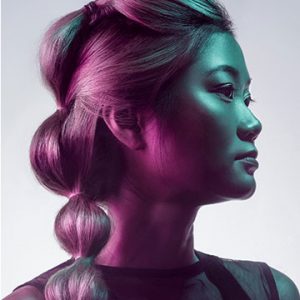There is no button that will create professional photos from amateur ones. There is a great deal of skill and training to learn how to take that kind of shot. Lighting is one major component, as well as camera filter use, etc.
I suggest you visit the Adobe Photography forum where photo experts can give you some tips on shooting like a pro.
Don
Xavier,
I hear this a lot and the answers are: Practice, practice practice. Join a photo club, exhibit your work and have it commented on by others. Ask other members how they achieve the effects you find pleasing. Read books by photographers you admire, etc.,
Remember, it is the eye "and brain) that "sees" the picture, the camera just records it. So, you must learn to see and seeing isn’t the same as looking. 😉
HTH
TMH
Don & T Mike are very correct in their advice. And Ill add a little more. Any time you see a photograph that you really like, study it to learn how the light is striking the subject. What direction is it coming from? Is it strong or soft light? Is the subject being lit by more than one light? Even the best subjects are rather plain without proper lighting.
I have followed this advice for so many years that it is now impossible for me to even watch a movie without noting how the lighting in each scene was created. An example would be the series Rome now on HBO. Simply beautiful lighting and it all looks so natural.
Peace,
Q
Q
I’m not an expert photographer, in spite of nine years of photojournalism experience. Like you, I have come to believe that lighting is the key to that kind of photo. I’ll bet in those photos menitoned by the OP, there were at least three light sources (counting a reflector or bounce as a source).
They were probably shot with a crew of four to eight people. No wonder a photo shot by one person is not going to match in quality, even if the exact same camera, lens and software are being used.
Don
I concur with everything said about this. I shoot about 30,000 pictures in 12 months time and no software can compensate for inadequate photography. It’s learn-able, but takes time and practice and "light" is the key (even with night photography). Where there’s light there’s a potential for good photography and when there’s no light being a good photographer creates the potential. Learning how to utilize light is essential. If 10% of your shots are coming out exactly the way you want them to, you’re doing pretty good.
There are so many aspects to getting good images and even in just defining "good". I like razor-sharp and then go from there. I can blur it, but making a blurry photo sharp isn’t equal.
Read, read, read, practice, practice, etc. Don’t give up.
If it weren’t for digital cameras, well, I don’t want to think about that. I admire those who’ve gone before me.
If 10% of your shots are coming out exactly the way you want them to, you’re doing pretty good.
Is that the target you shoot for, Jeff, or what you would expect a beginner to hit.
Don
I have about 7% successrate, when on a documentary assignment. I think the number depends on your own standards, as well as your skills. I got this number from an assignment where I shot 4000 frames over several days. Most all photos were sharp. But only about 270 photos are portfolio grade when all aspects of the photo are considered.
Mathias
Xavier,
It’s not all lighting! Yes, lighting is important. And, this photographer is very cognizant of the lighting. But, he’s also taking advantage of the characteristics of the lens in his composition and is using filters to increase contrast and adjust tonality (a number of the black and white ones show a deep red or even light infrared filtration — you can see it in the skin tones, foliage, and sky). The saturated colors suggest a possible use of a polarizing filter.
There is also evidence of Photoshop processing. Many black and white images have burned-in edges (an old darkroom technique that’s been around for ages) for example. It also appears that levels/curves adjustments were done to adjust the tonal range. The saturation may have been kicked up a bit in some photos as well. For the most part though, the photoshop work is more along the lines of what a traditional darkroom technician would do with a custom conventional print.
I second the suggestion to visit the Adobe Photography forum. What is needed to produce these types of photos is a good solid understanding of traditional photographic principles (and practice, practice, practice).
Bob

